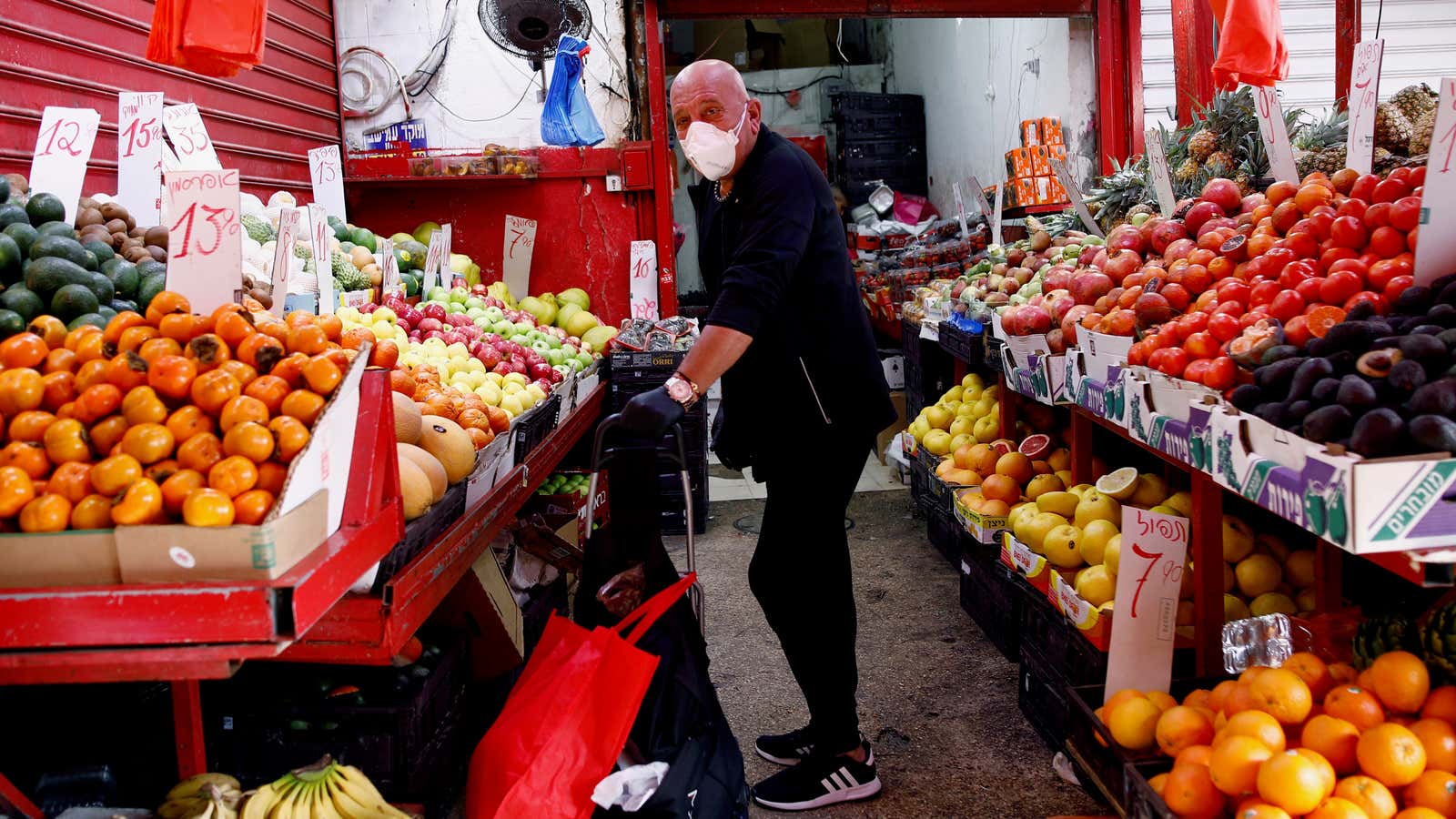The spread of a global pandemic is changing the rules of human interaction and daily life worldwide. And rightly so. But in unusual times that call for irregular measures, some containment efforts are raising serious legal questions.
Take Israel, for example. Israeli prime minister Benjamin Netanyahu announced in a televised address on Monday that the country would implement emergency cyber surveillance measures for 30 days. Authorities will track the mobile phones of people diagnosed with the virus as well as those who are just suspected of having contracted Covid-19. They will use the information collected to inform people who unwittingly come in contact with the infected in the two weeks prior to confirmation of their cases for containment.
The technology for this type of monitoring was developed for counterterrorism purposes and Netanyahu bypassed the usual parliamentary process for implementation. Technically, he got approval for this move from attorney general Avichai Mandelblit, explaining over the weekend, “I refrained as prime minister from using these means among the civilian population until now, but there is no choice. We are waging a war that obligates using special means, and therefore I sought the approval of the Justice Ministry. This gives us a very effective tool.”
Israel isn’t the only country that is using technological tracking of civilians to attempt to contain the spread of disease. In South Korea, an amended 2015 law allows the health ministry to collect extensive data, including credit card use and location tracking, without a warrant, all in the interest of disease prevention. Each person under surveillance must be ultimately notified of the tracking and the information collected must be destroyed when the “relevant tasks have been completed.”
A slew of other legal provisions also give South Korean authorities the ability to respond quickly to health crises like the one the world faces today. And this has helped locals to widely test and effectively respond to the spread of coronavirus in a country with the largest disease outbreak outside of mainland China.
But legal experts worldwide are worried about the balance between civil liberties and survival. The freedoms we are willing to give up today to be safe may be eroded in the long term by allegedly temporary emergency measures, presenting altogether different dangers than those created by the spread of infectious disease.
As Herb Keinon, a local columnist, put it in the Jerusalem Post, “Israel’s measures against coronavirus [are] not unlike Big Brother.” Although Netanyahu assured Israelis that he wouldn’t use the highly invasive surveillance for anything other than disease tracking, the source from which these consolations emanate raise suspicions.
Netanyahu—whose own corruption trial was set to start this week and is now indefinitely delayed by nationwide coronavirus containment efforts—hasn’t exactly been working hand in hand with the Justice Ministry of late. “The problem…is that for months, even years, he has been bashing and undermining the legal establishment investigating him—a legal establishment that he is now asking the public to trust as he takes a far-reaching step,” Keinon writes.
Thus, Israelis face two major problems. They are subject to an unprecedented invasive measure, and they are being asked to trust a prime minister and legal authorities that have been at war with each other to now cooperate to protect their rights and lives. That might be a tall order. Keinon and others in Israel worry that their government isn’t trustworthy and that measures implemented in an emergency might continue long afterward.
In the short term, location tracking may not be such a big problem for Israelis over the coming 30 days (though what they did in previous weeks may not remain secret). They are going nowhere anyway and are subject to administrative fines for up to 5,000 shekels (about $1,300) for leaving their homes without justification—that is, if not to to shop for groceries, seek medical attention, or because they are among the necessary personnel still working in a country that has been essentially shut down in a world upheaved by disease.





